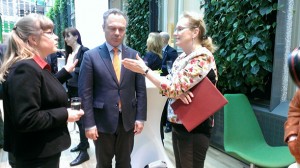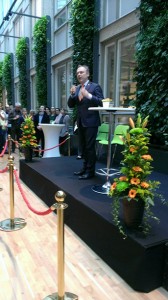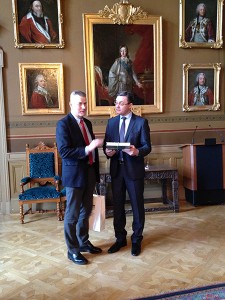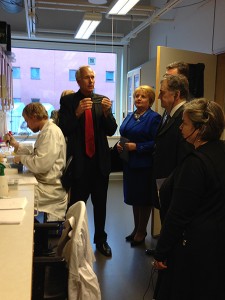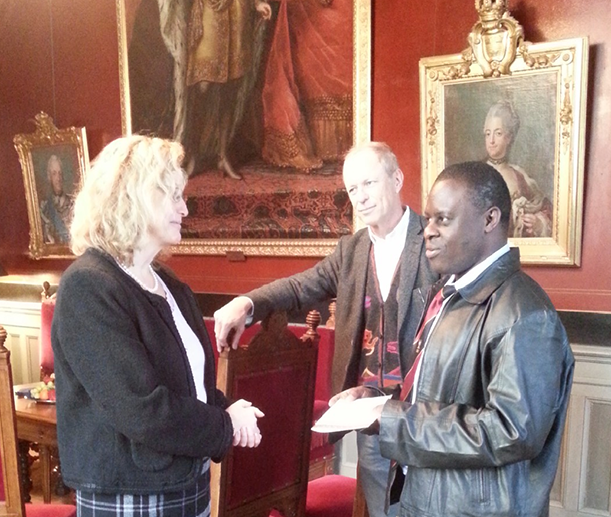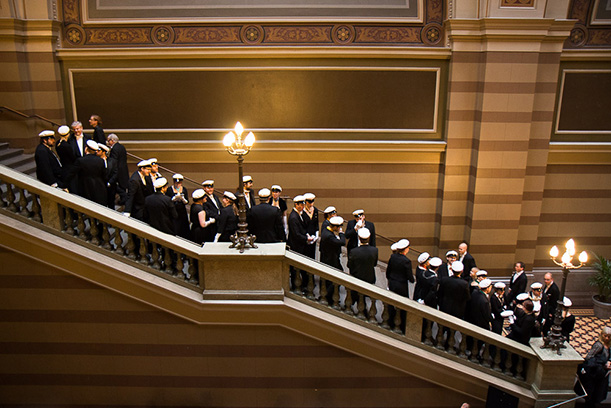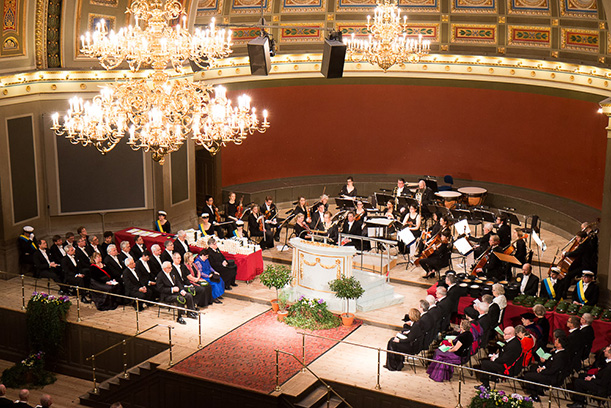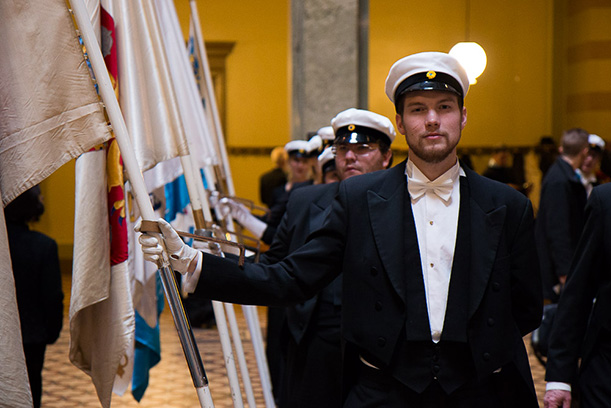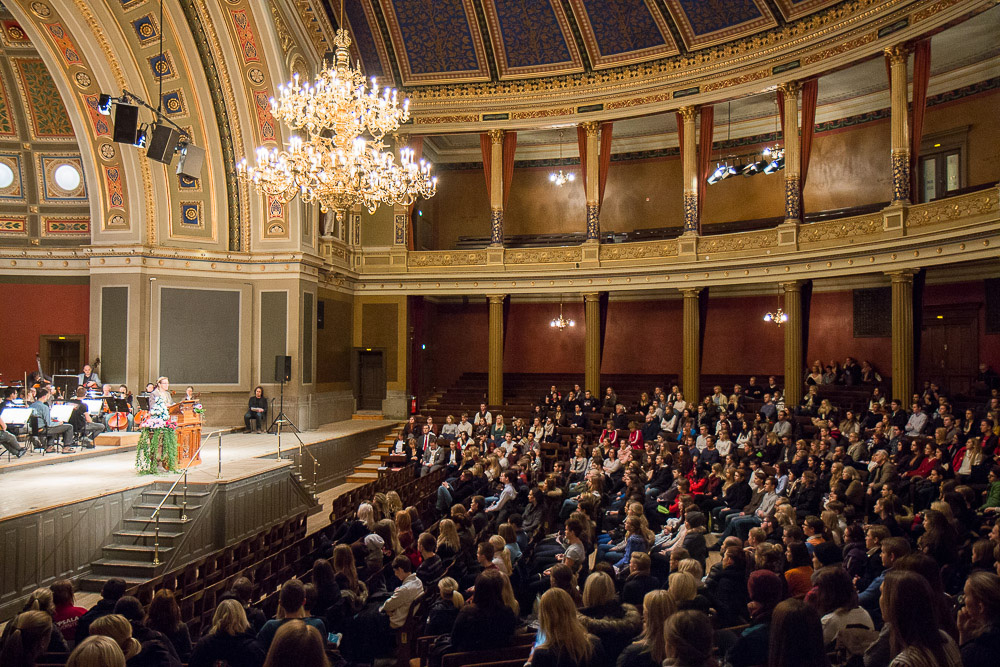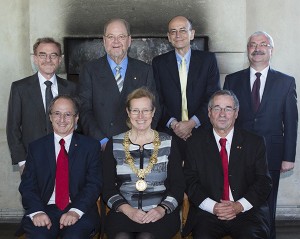As 2013 winds down, we summarise the year that was and look ahead to 2014.
When we look back, certain events stand out, such as the inauguration of Campus Gotland during Almedal Week. The autonomy discussion prompted by the government’s proposal regarding higher-education foundations being circulated for comment is also one of the year’s key events. We have had many interesting debates; one might say that we freely discussed what is right.
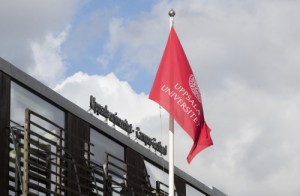
Foto. Mikael Wallerstedt
Rewarding recurrent events include the welcoming of new students at the start of each semester and our issuing of mild warnings ahead of the Frosh Banquet, as well as congratulating those being awarded their doctorates, new professors, and prize-winners at conferment ceremonies and installation festivities. Nor will Walpurgis Eve, with the Running of the Rapids, soon be forgotten!

Foto: Mikael Wallerstedt.
We can also observe that there is always something to celebrate at our University. The choir Allmänna sången is marking a jubilee, the inspectorate and the Department of Riding are commemorating 350 years, and medical training 400 years. During the year we have also thanked the retiring chair of the University Board, Hans Dalborg, and welcomed Carola Lemne as his successor.
Many prominent guests have visited Uppsala University, which is always stimulating and rewarding. We especially recall the start of the autumn semester with Kofi Annan and Jan Eliasson. The following week our students had the opportunity to hear Margot Wallström deliver the Dag Hammarsköld Lecture. And the visit from the Nobel laureates always brightens up December. It is gratifying to be able to offer activities like these, both to our students and to the general public.
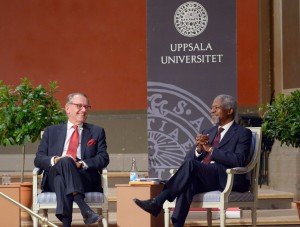
Foto: Jim Elfström.
Our daily work here at home often consists of meetings, seminars, and conferences with participants from all over the world, but we have also been abroad and gleaned impressions from other seats of learning and corners of the world. During the year the Vice-Chancellor’s Management Council has visited universities in the UK (Edinburgh, Oxford, Cambridge) and Finland (University of Helsinki and Aalto University) – trips that were both educational and inspiring.
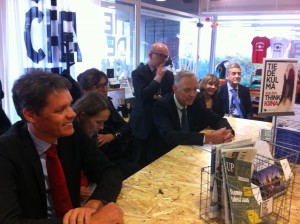
The Vice-Chancellor’s Managemen Council in Helsinki.
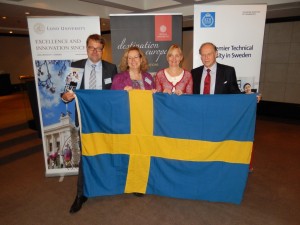
In Brazil.
An important portion of the University’s activities are carried out at our museums and in the Botanical Garden, which are often venues for meetings and seminars, but also for concerts and spectacular sports events. Uppsala University is an open institution that is pleased to share its operations and its cultural milieus with others. Much of this is made possible by donations that are managed by Uppsala Akademiförvaltning (Academy Management) for the benefit of future generations. In this context the foundation Friends of Uppsala University also plays a key role. The purpose of the foundation is to actively work to ensure that urgent University projects can be realized.
Other forms of donations that make a difference are for instance the Oncolytic Virus Fund. During the year small donations from thousands of individuals, albeit in combination with one major donation, have enabled Professor Magnus Essand and his research team to begin work with the world’s first clinical studies of a virus treatment that specifically targets neuroendocrine tumours.
We have also continued our work with the four strategic focus areas for excellence in teaching and research: quality, infrastructure, internationalisation, and competence and career.
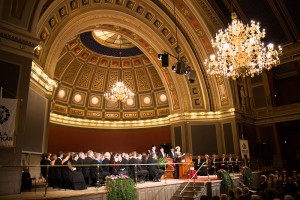
Installation of professors and conferment of prizes.
Our quality work is constantly moving forward. This autumn’s retreat with the deans took up quality control and quality development. SUHF (the Association of Swedish Higher Education) has proposed a future model in which higher-education institutions themselves could take the responsibility for creating their own quality systems for external assessment, which, following approval by the Swedish Higher Education Authority, could replace the current national system. On the research side we have thus far arranged our own major evaluation projects (Q&R07 and Q&R11). Now the Swedish Research Council is investigating the establishment of a national peer-review-based system. The Meeting of the Deans in November, just like the University Board when the issue was discussed there in December, asserted that Uppsala University must take a major responsibility for our own quality matters.
Concerning infrastructure, during the year Joseph Nordgren has been tasked with taking inventory of our needs, an assignment that is expected to be completed in February.
In the focus area of internationalisation, Leif Kirsebom began work as adviser to the Vice-Chancellor for internationalisation last spring. A pan-University group has also been created to address these issues. Internationalisation is an area where we can make further improvements.
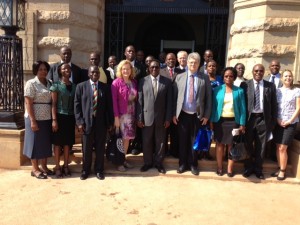
Makerere University, Kampala, Uganda.
Being an attractive employer is critical to our success, and our work in the area of competence and career continues unabated. For example, we have initiated work to map our limited-term appointments, and we have welcomed hundreds of new co-workers during the year.
To back up strategic work and to provide efficient operational support, University Director Ann Fust initiated quality work within the administration during the autumn. The project aims to facilitate research, education, and collaboration, enhancing quality, reducing costs, and freeing up researches to increase our freedom to act. The work is being pursued in project form and is starting with human resources, finance, and administration of studies. The first focus is on salary administration, where a decision will soon be made to move in the direction of central salary administration. The work mode is to be characterised by broad participation in the organisation. The main reason for working with workflows is the University’s own driving force to work efficiently and with quality in mind. There is also external pressure following the creation of the State Service Centre, as ratios are now available for comparison regarding certain services in the areas of finance and human resources.
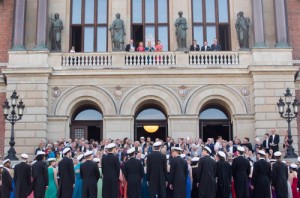
Foto: Mikael Wallerstedt.
With the end of the year approaching, it is time to look forward. We will continue to grow in research – but the way today’s policy looks we will probably be shrinking when it comes to education. Though this will be a challenge for us, it is above all a problem for the young and highly motivated students who will not have the opportunity to create their own future by getting a university education.
One way of looking ahead is to review our Goals and Strategies, a task being led by Göran Magnusson and Coco Norén. Following a period of broad consultations, this work is now entering the drafting phase. The proposal will be circulated for comment in the spring.
The autonomy process is thought to be continuing into 2014. It is important for us to continue the discussion and achieve a broad consensus on what we want our future to look like, in terms of both the University’s relation to the state and our internal modes of operation and governance.
The development of Uppsala University is driven by committed and dedicated associates and students. We want to thank you all for the year gone by and for your fine contributions.
We wish you a truly enjoyable Christmas and a Happy New Year!

